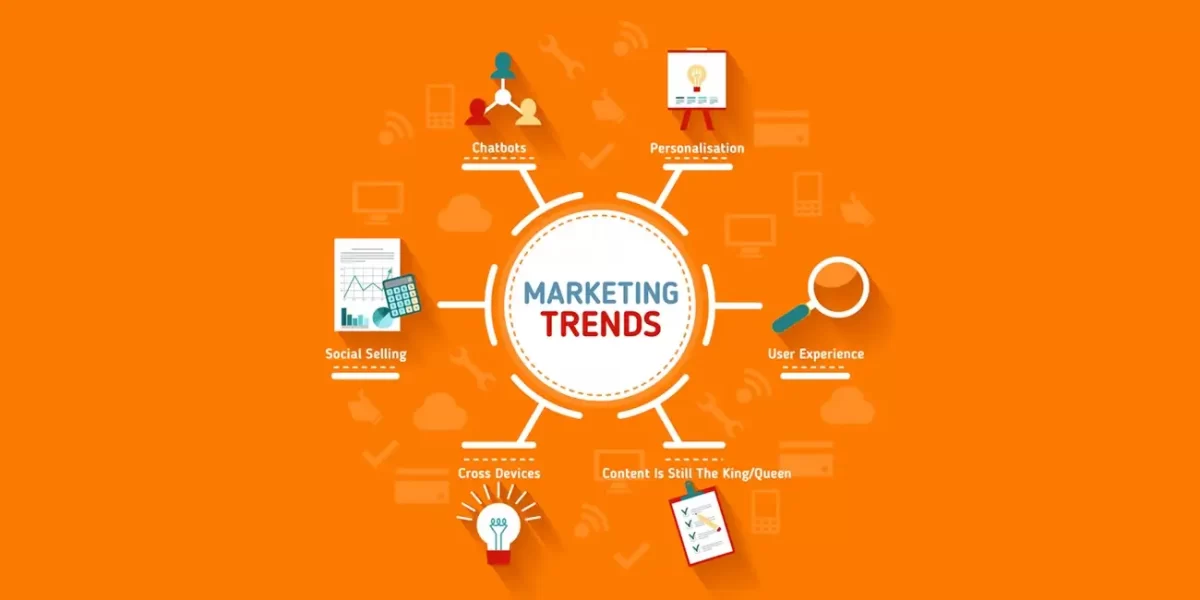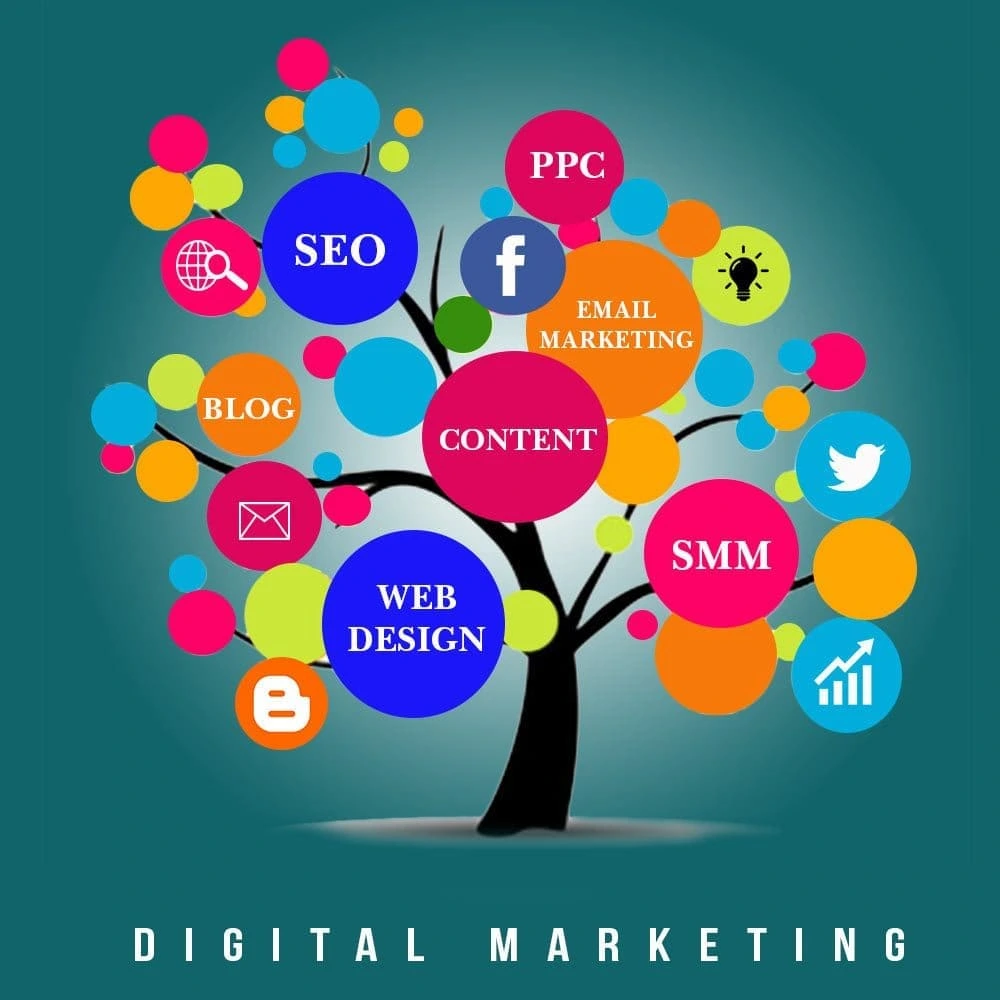Artificial Intelligence got a major push in the last year or so, and for all the right reasons, seeing as to how beneficial it was to many industries. There is a high chance, artificial intelligence will stay the leader since it is integral to most innovations and interventions. There have been so many trends that took the marketing world by storm that it only makes sense, we have a look at them. A look at the digital marketing trends will shape and possibly dominate the advertising and marketing world in the year of 2020. Sure, the world has come to a stand still at the moment because of a global pandemic, it is a good time to learn about what we can do for the future. Let’s begin then!
Video Marketing: Video Marketing is another area that will explode in 2020. There are more than a dozen online streaming platforms at your disposal at any given time. On an average a user spends more than 60% of their time-consuming video content of different kinds. Studies have suggested that video content leads to an enormous surge in brand resonance and conversion. However, while creating the content one has to be mindful that videos get viewed more on mobile screens. There are a plethora of video formats that can be used depending on the channels of dissemination, viz. 360 degrees, snippets for social media posts, live video, etc. All achieving different marketing goals.
Vernacular marketing makes the big leap: The online space in India is set to get even more colourful and diverse. As even larger numbers of users get access to low-cost internet and affordable mobile phones, there will be a greater demand for internet content in the languages they understand best. To cater to this growing internet audience, brands need to push vernacular to the front and centre of their digital marketing strategy. Right from their websites, to their apps, social media campaigns, performance advertising and even social media listening, Indic languages should be the focus. Speaking to regional audiences involves more than just taking a brand’s main communication and translating it into various languages. Instead, it requires them to develop communications aimed specifically at these audiences, keeping their unique needs, challenges and desires at the core. Only by doing this can they create that all-important personal connection with consumers.
Augmented Reality becomes mainstream: 4G has taken India’s markets by storm, and Indian service providers are eager to capitalize on this moment to drive user and customer engagement. Augmented Reality can be used in a multitude of ways, changing experiences across different sectors, be it retail, live events, museums, real estate, education or automobile. Facebook introduced Spark AR this year for the general public, which allows users on Facebook and Instagram to create filters and upload them online. Other users can then save these and apply them to their stories. Facebook has been seeing a lot of success with the launch of this product and this will probably ‘spark’ AR trends even more.
Google had already rolled out Google Lens which is an image recognition technology that uses the point and shoot feature to show fitting search results. These two giants have showcased the diversity in the use of AR and how successful it can be when implemented right, driven by function. VR will also start to pick up more as we enter 2020, but since VR devices are still too expensive for the Indian market, it is unlikely that it will pick up at the same pace as Augmented Reality will.
Influencer Marketing continues to pack a punch: Influencer Marketing has seen steady growth in the last few years, and brands are completely convinced about the use of KOLs to help amplify the brand message to a larger niche market. The trend has also started to witness the efficacy of micro-influencers due to its inherent authenticity. In fact, Artificial Intelligence will play an important role to even recommend which influencers to use for better engagement and a higher return on investment for a particular mix of brand, product, target groups, etc.Conversational Marketing using chatbots with the aid of NLP will very rapidly proliferate in areas such as customer service where the conversation has to be human-like, to facilitate not just basic communication but also product recommendation, personalization, e-commerce solutions, etc.
First party data and Artificial Intelligence go hand in hand: It’s quality over quantity, always. Which is why, many brands are now wanting to capitalize on their first-party data, instead of opting for second and third-party data. First-party data allows for exact, valuable insights into a customer’s direct engagement with the brand, whether it’s their individual interests, which ads they engage with, or how much time they spend on the brand’s website. This information is unfiltered, specific, and relevant, which helps to build an audience profile that is an exact match with the product or service in question. It is also cost-effective, as it’s free, and is lawful and transparent. Nike is one such company, which has already announced that they will be selling only directly going forward.
Artificial intelligence fits into this equation as it can prove to be extremely beneficial in sifting through these data sets, which for a team of actual people, can be daunting. AI could uncover insights that could have been missed otherwise, identify critical data and trends, and all at unmatched speed with extreme accuracy. Thus, AI and first-party data may hand-in-hand serve to drive more personalized communication soon.
The popularity of videos and interactive content doesn’t get affected: While videos have been around for decades, they have only recently started exploding on digital platforms and social media. In 2020, if your brand doesn’t have a strong repertoire of engaging, high-quality videos, you could be missing out on a sizable audience. YouTube, the world’s second largest search engine, can become even more essential in 2020. Through techniques like YouTube SEO, brands can ensure that their content is visible to relevant audiences. But the importance of videos extends beyond just YouTube. Videos on landing pages and in emails have been shown to improve performance and conversions. Facebook is also witnessing a growing popularity of videos.
As videos gain momentum, multiple video formats are also being developed and explored. Interactive videos are emerging as a popular option due to the higher user engagement they deliver. In these videos, users are required to take some form of action which can influence the video. This could be either in terms of the content displayed or the storyline that the video takes. Instagram Live, Facebook videos are becoming extremely popular, keep that in mind as well.
Organic reach on social media platforms gets hit: Previously, organic reach on Facebook had taken a hit, with pages showing close to zero reach without paid promotions. In 2019, all signs are pointing towards Instagram going down the same route. As Instagram grows in popularity and adds new users every minute, it predictably wants brands to start paying for higher reach. If your company page doesn’t have adequate promotional budgets, then it’s time to scale up this year. But while showcasing your brand on Instagram might become more expensive, it’s still completely worth it. India currently has around 71 million active users and this number is only set to grow from here. Clearly, brands cannot afford to neglect this audience, paid or otherwise. Why 2020 should be any different is a question we do not want to ask.
Voice search dominates e-commerce business: E-commerce is the way of the future, and with search interaction having increased, leading companies will find voice a profitable technology to drive sales and revenue. This has already been evidenced in the huge investment Amazon has put into Alexa and Google into Google Home and its Google Assistant. Businesses will see voice user interface as an innovative tool that enables faster, more efficient customer engagement as voice commands surround every sphere of life, driving purchases, payments and more. Voice ordering, already a popular phenomenon in the US, will start picking up in India as well.
Even with the constant changes in digital marketing, one thing is a certain, digital marketing will continue to flourish no matter what. Change is certain, but what will stay top of the mind of a marketer is how to ensure customer satisfaction and possibly, customer retention for their brands. It will be exciting to see what the future holds.

